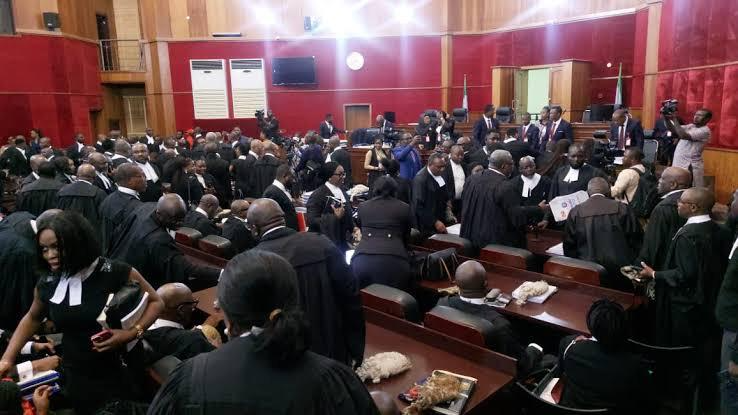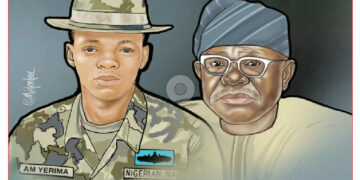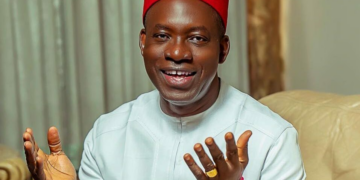The much-anticipated verdict of the presidential election petition tribunal has finally been delivered. In the days leading up to the judgment, Nigerians were on the edge of their seats, and the digital realm was abuzz with armchair lawyers offering their perspectives on the matter.
The level of anticipation and scrutiny surrounding this judgment might lead one to believe that it was the first presidential election in the history of our nation. It wasn’t, but the stakes were undeniably high.
Throughout this process, I’ve held the view that, regardless of the verdict, the judiciary would find itself in a precarious position.
In Nigeria, when a judgment aligns with our expectations, the judiciary becomes the guardian of democracy, the last hope of the common man. However, when the verdict goes against our wishes, suddenly our democracy is deemed to be in jeopardy, and the judiciary bears the brunt of our disappointment.
In this high-stakes game, it often seems that the judiciary can never emerge as a true victor.
Unsurprisingly, the aftermath of the judgment was accompanied by a cacophony of commentary, both online and offline. While it is the right of every citizen to express grievances following a judgment, what is categorically unacceptable is the idea of undermining an entire institution due to personal dissatisfaction with the outcome.
Regardless of our sentiments concerning the judgment, we must never engage in actions that could potentially erode the integrity of our judiciary.
This brings us to a fundamental question that demands our attention: Should the judiciary have the power to determine the outcome of elections in Nigeria? In a true democracy, the people should have the ultimate say in who governs them at all levels of government.
The prevailing practice of a small panel of individuals deciding the fate of senators, governors, and even the president through the intricate web of legal technicalities is a far cry from the essence of democracy. This process, which often leads to the declaration of election winners based on legal minutiae, can be seen as the highest form of imposition and a miscarriage of justice.
Our politicians, too, need to reevaluate their approach to elections. The persistent desire to secure victory at any cost has resulted in a proliferation of court cases following every election. To put this into perspective, in 2019, the Independent National Electoral Commission (INEC) reported a staggering 1,689 court cases arising from the general election. This number included over 890 cases related to pre-election matters, primarily stemming from disputes within political parties over primary elections. Additionally, there were 799 election petitions brought before various tribunals across the country.
Furthermore, as of February 6, 2023, INEC found itself entangled in 1,241 intra-party lawsuits in different courts of law. These numbers are not merely statistics; they represent a systemic issue that threatens the stability of our democratic processes.
It is crucial to address the root causes of this litigious environment surrounding our elections. One key aspect is the urgency for political parties to adopt more transparent and accountable processes when selecting their candidates. A significant portion of pre-election cases arises from disputes over the conduct of political party primaries.
Parties must prioritize internal democracy and adhere to their own guidelines to minimize internal conflicts that spill into the courtroom.
Another critical facet of the issue is the need for politicians to respect the rules of the game. Winning an election should not hinge on bending or breaking the rules. A commitment to fair play, ethical campaigning, and adherence to electoral regulations will reduce the incentive for post-election legal battles.
Moreover, the electoral system itself could benefit from reforms aimed at reducing the likelihood of contentious outcomes. Implementing measures that enhance transparency, such as the use of technology to transmit results and monitor the voting process, can help build trust in the electoral process.
Additionally, fostering a culture of peaceful and inclusive politics can significantly reduce the drive to resort to litigation as a means of settling political disputes.
The recent presidential election petition tribunal verdict has ignited a broader conversation about the role of the judiciary in our democracy and the need for electoral reforms. While it is natural for citizens to express their dissatisfaction or approval of judicial decisions, it is imperative that we do not undermine the very institution that upholds the rule of law in our nation. Democracy should indeed be about the voice of the people, and the current practice of relying on legal technicalities to determine election outcomes warrants reconsideration.
To create a more robust and resilient democracy, political parties must engage in transparent candidate selection processes, and politicians should commit to ethical conduct during campaigns and elections. Simultaneously, our electoral system should be fortified with measures that enhance transparency and inclusivity.
By addressing these issues collectively, we can hope to reduce the prevalence of post-election court battles and uphold the true spirit of democracy in Nigeria.





